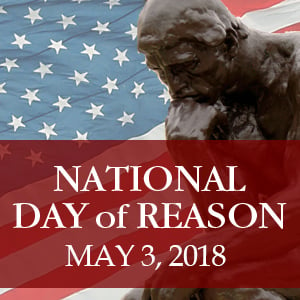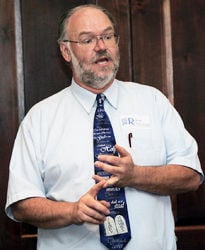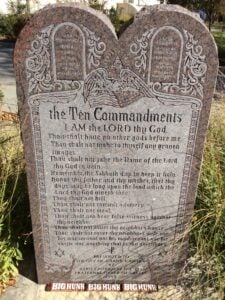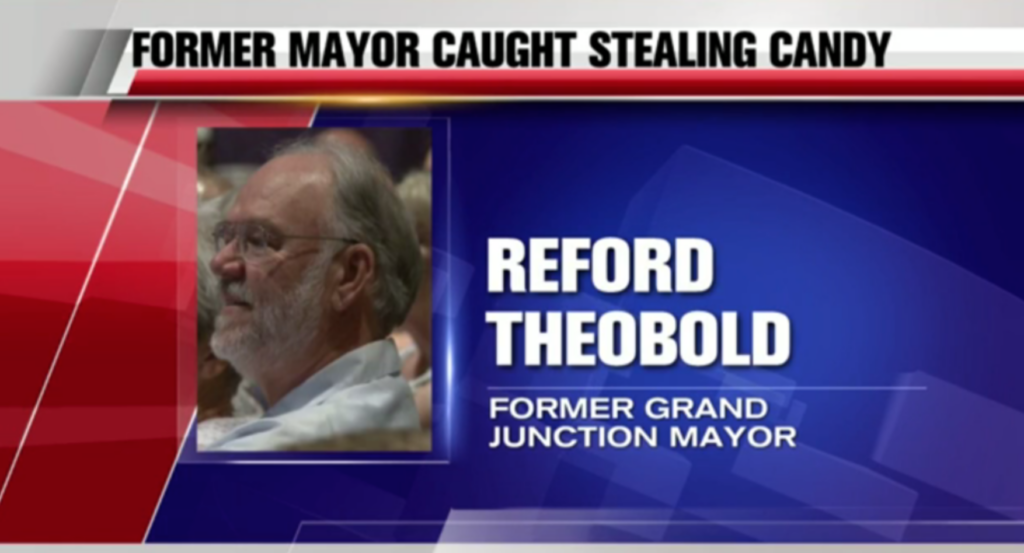 The first Thursday in May of every year is the National Day of Reason, a celebration that coincides with the National Day of Prayer, which encourages Americans to pray to God for peace and prosperity for the nation. A big problem with the National Day of Prayer, though, is that it excludes almost a quarter of the U.S. population that doesn’t belong to any religion or doesn’t believe in God. That’s a whole lot of people to leave out of a national celebration. Another problem with the National Day of Prayer is that government officials use the occasion to engage in an egregious violation of the separation between church and state, and in so doing alienate millions of atheists, agnostics and humanists who use reason, not prayer, to solve problems.
The first Thursday in May of every year is the National Day of Reason, a celebration that coincides with the National Day of Prayer, which encourages Americans to pray to God for peace and prosperity for the nation. A big problem with the National Day of Prayer, though, is that it excludes almost a quarter of the U.S. population that doesn’t belong to any religion or doesn’t believe in God. That’s a whole lot of people to leave out of a national celebration. Another problem with the National Day of Prayer is that government officials use the occasion to engage in an egregious violation of the separation between church and state, and in so doing alienate millions of atheists, agnostics and humanists who use reason, not prayer, to solve problems.
The American Humanist Association also established National Day of Reason to raise public awareness of the threats posed to religious liberty when American government intrudes into Americans’ religious beliefs, which have typically been regarded in this country as a private, personal matter.
Federal Resolution introduced to officially recognize the National Day of Reason
On April 26, 2018 House Representative Jared Huffman (D-CA) introduced H. Res. 852, a resolution recognizing May 3, 2018, as the National Day of Reason. Co-sponsors include Representatives Mark Pocan (D-WI), Zoe Lofrgen (D-CA), and Eleanor Holmes Norton (D-DC). The National Day of Reason is a secular alternative to the National Day of Prayer, and the formal resolution was made to celebrate reason, a concept that all Americans can support, and promote public policy based on reason and logic rather than on politics and ideology.
In 2017, Iowa declared the first Thursday in May as that state’s Day of Reason, and in 2014, Nebraska did the same, encouraging citizens to solve problems using reason, critical thought and the scientific method to resolve problems of mankind.
One must question, though, whether the City of Grand Junction operates based on reason, or on fear or religiosity.
City of Grand Junction still showing it’s preference for Christianity


Unfortunately, the City of Grand Junction is still showing a clear preference for Christian citizens over those of other religions and of non-religion, having hosted an invocation at it’s March 7 meeting in the name of “Jesus Christ” (video) by Pastor Adrian DeLange of the New Life Church. Just two days earlier at a workshop about the City’s invocation policy, Council concluded it was the job of the mayor to “step in” and inform speakers they needed to “keep their comments more generic” during invocations in order to comply with City policy that prohibits speakers from “exploiting the invocation opportunity to proselytize.” Despite this, Pastor DeLange’s invocation prayer to “Jesus Christ” passed without comment, as Grand Junction’s mayor, Rick Taggart, did and said exactly nothing.
In another display of religious preference, the City also continues allow a stone tablet of the Ten Commandments — an overt endorsement of Christianity — to grace the lawn in front of City Hall. The presence of the religious tablet on government property was defended during a 2001 challenge by former mayor Reford Theobold, who often wore a tie with pictures of the Ten Commandments on it, and who was known informally around town as the “Ten Commandments Mayor.”
City’s display of religious preference ends in BIG embarrassment
In 2015, Ten Commandments moralizer Theobold was arrested for shoplifting Big Hunk candy bars from Cabela’s at Mesa Mall, rendering the Ten Commandments on City Hall’s lawn — and Reford’s tie, and the City’s preference for Christianity — little more than a monumentally embarrassing hypocrisy for the City and it’s residents.
